Committee moves into private sessionpublished at 10:46 BST 5 October 2017
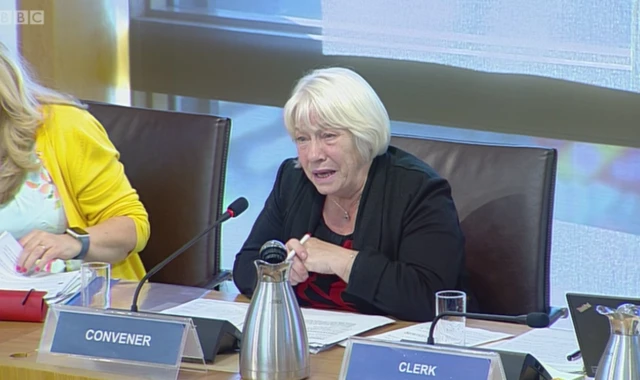
Committee convener Sandra White thanks the witnesses and moves the committee into private session.
The Social Security Committee takes evidence on the Social Security Bill from charities
Nicola Sturgeon is quizzed by opposition party leaders and MSPs during first minister's questions
Finance Secretary Derek Mackay delivers a ministerial statement on Air Departure Tax
The Scottish government delivers a ministerial statement on Scottish City Region Deals
MSPs debate the Wild Animals in Travelling Circuses Bill before voting on its general principles at decision time
Colin Bell and Craig Hutchison

Committee convener Sandra White thanks the witnesses and moves the committee into private session.
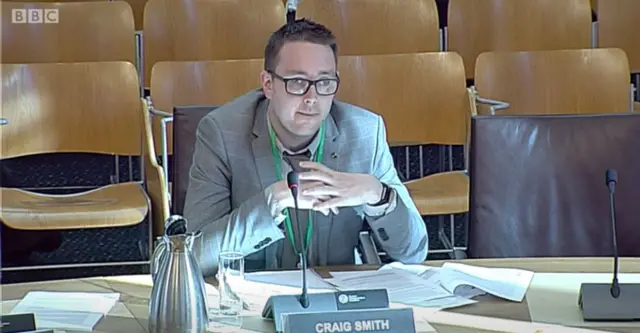 Image source, bbc
Image source, bbcCraig Smith from SAMH
Craig Smith from SAMH says regulations are quicker to change but scrutiny is the concern.
Mr Smith says primary legislation takes longer but that is not necessarily a bad thing.
He says he understands you can't have all the detail of a complex social security system on the face of the Bill.
Mr Smith: "Scrutiny is a real concern for us."
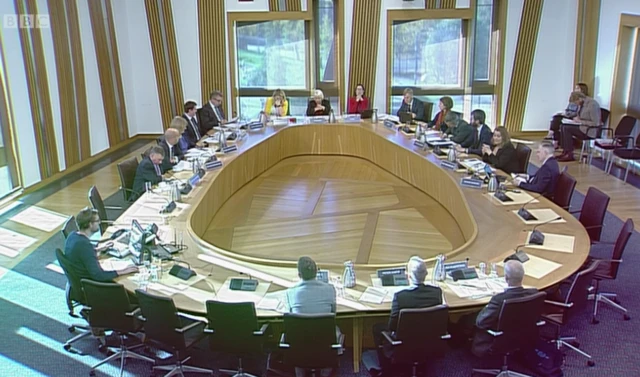
SNP MSP Ben Macpherson says it has been suggested there should be a statement on fast tracking in the primary legislation.
Peter Hastie says Macmillan Cancer Support push the UK government for faster payments but have more success when it is a terminal illness.
Mr Hastie says the nature of terminal illnesses will change over a period of time so "you wouldn't want to tie your hands."
He says every system accepts that you sometimes have to fast track payments for terminal illness.
Craig Smith from SAMH says: "The charter should be for everyone that is using the system and the system itself."
Mr Smith says charters in other legislation have not had the impact they should have or could have.
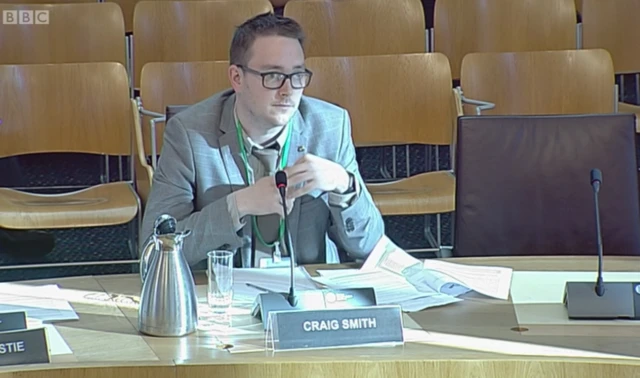
Craig Smith from Scottish Association for Mental Health (SAMH) says over 30% of people receiving PIP have mental health problems therefore that should be reflected.
Mr Smith says there needs to be clarity as to whether the principles are systemic.
He says people need to have suitable redress if they do not think the principles have been met.
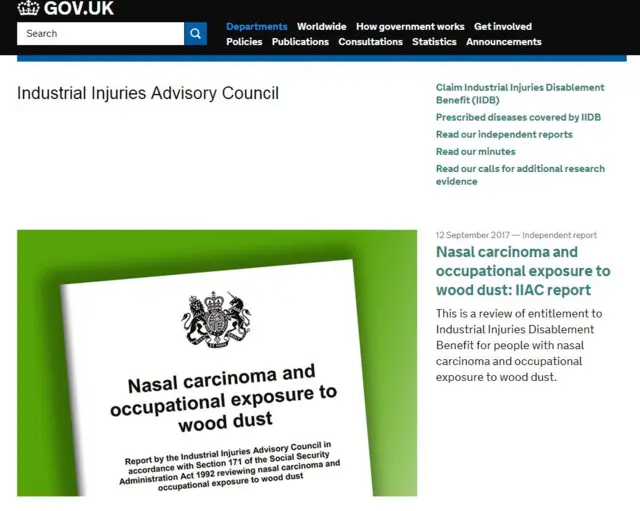 Image source, bbc
Image source, bbcIndustrial Injuries Advisory Council
The Industrial Injuries Advisory Council website is here., external
Allow X content?
This article contains content provided by X. We ask for your permission before anything is loaded, as they may be using cookies and other technologies. You may want to read X’s cookie policy, external and privacy policy, external before accepting. To view this content choose ‘accept and continue’.
Peter Hastie from Macmillan Cancer Support says: "There is something about pre-advocacy that we can be interested in."
Mr Hastie points to the model used in the Queen Elizabeth hospital in Glasgow.
He says survival rates are growing massively for cancer patients.
Mr Hastie says there are so many roles for so many professionals in society to support a person not to need benefits.
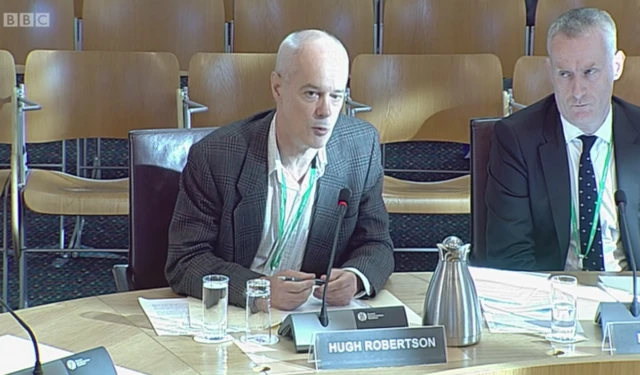
Hugh Robertson from the Industrial Injuries Advisory Council
Hugh Robertson from the Industrial Injuries Advisory Council says it is very difficult to show that a mental health disorder has been caused by work.
Mr Robertson says someone who does have a mental health issue due to work can be treated and therefore it should not be defined as a disability and it is important to empower people.
He says the Scottish government must decide what type of system it wants to evolve for the workplace.
Allow X content?
This article contains content provided by X. We ask for your permission before anything is loaded, as they may be using cookies and other technologies. You may want to read X’s cookie policy, external and privacy policy, external before accepting. To view this content choose ‘accept and continue’.
Allow X content?
This article contains content provided by X. We ask for your permission before anything is loaded, as they may be using cookies and other technologies. You may want to read X’s cookie policy, external and privacy policy, external before accepting. To view this content choose ‘accept and continue’.
Craig Smith from SAMH says there is a very good evidence base around the impact of advocacy and advice.
Mr Smith says the government pilot providing advoacy had a stark impact.
He says there is a clear role for advocacy and that should be on the face of the Bill.
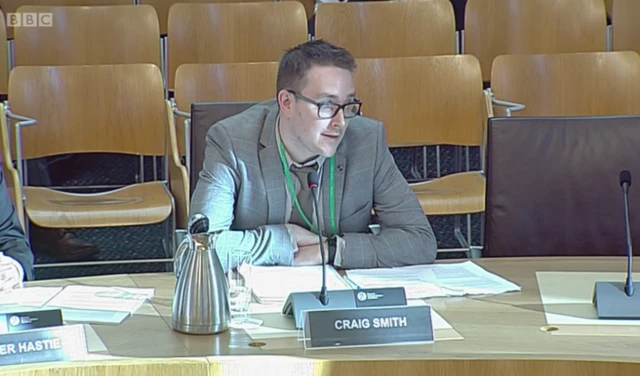
Tory MSP Jeremy Balfour says his experience is that those who come to DLA or PIP with mental health issues are those who have the most difficulty.
Mr Balfour asks if the witnesses have a view on whether or not advocacy should be on the face of the Bill.
The Tory MSP says there is no definition of residency in the Bill and asks if that needs to be covered.
Craig Smith from Scottish Association for Mental Health says SAMH would like to see advocacy in the Bill as in the Mental Health Act.
Craig Smith from SAMH says a big gap in the Bill is that there is not provision to create new benefits is not there.
Tory MSP Adam Tomkins says there is the power to top up benefits in the Bill but not to create a new benefit.
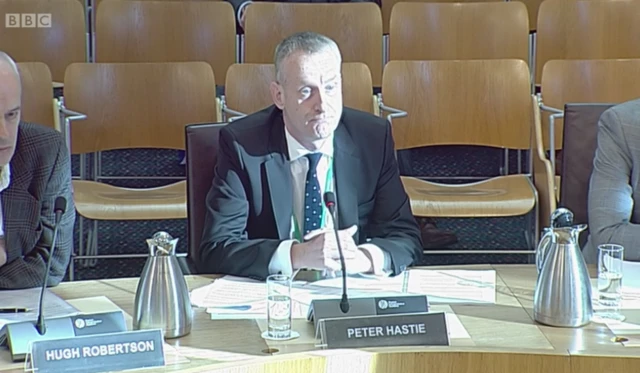
Peter Hastie says Macmillan Cancer Support "comes to the Bill with a lot of good faith."
"The Bill does a lot and understands a lot of what we've brought forward in our submission," he says.
Mr Hastie says a lot of it appears to understand someone with cancer coming to a new benefits system.
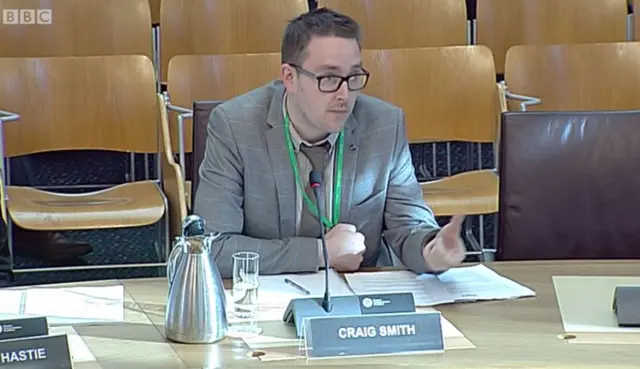 Image source, Scottish Association for Mental Health (SAMH)
Image source, Scottish Association for Mental Health (SAMH)Craig Smith from the Scottish Association for Mental Health (SAMH)
Craig Smith from the Scottish Association for Mental Health (SAMH) says there should be a clear purpose for each benefit and a definition of disability to be on the face of the Bill.
Mr Smith says there definitely needs to be a balance with secondary legislation.
Allow X content?
This article contains content provided by X. We ask for your permission before anything is loaded, as they may be using cookies and other technologies. You may want to read X’s cookie policy, external and privacy policy, external before accepting. To view this content choose ‘accept and continue’.
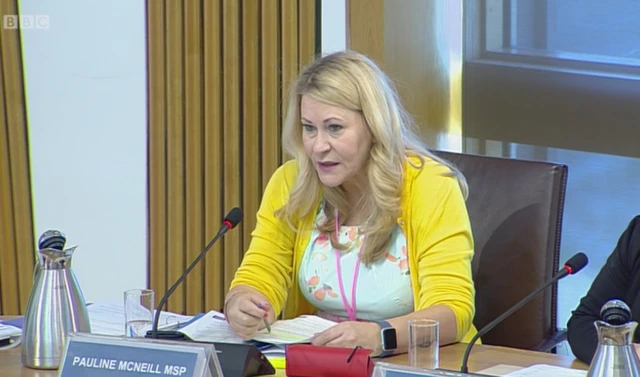
Labour MSP Pauline McNeill
Labour MSP Pauline McNeill asks about the rules on the face of the Bill for terminal illness.
Ms McNeill says Marie Curie thinks it is too prescriptive.
Peter Hastie from Macmillan Cancer Support says for his organisation the cancer pathway is met by the current definitions.
Mr Hastie says, for cancer, the six month pathway seems appropriate at the moment but as technology and palliative care improves with earlier detection this may require review.
 Image source, Macmillan Cancer Support
Image source, Macmillan Cancer SupportMacmillan Cancer Support
"Macmillan in Scotland offers practical, emotional and financial help to people affected by cancer. We provide trained medical professionals to the NHS and have cancer centres throughout the country where people receive expert care in a specially-designed environment."
Read the Macmillan Cancer Support in Scotland submission to the committee., external
Peter Hastie from Macmillan Cancer Support Scotland says he is very positive about the way the Bill is set up.
Mr Hastie welcomes the language in the cancer plan which is using the same language as in the Scocial Security Bill.
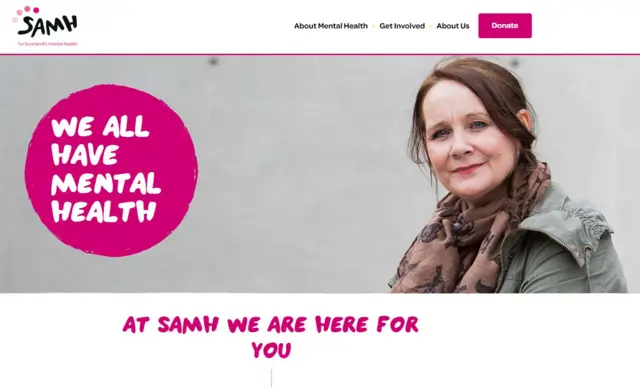 Image source, SAMH
Image source, SAMHSAMH
"Around since 1923, SAMH, external currently operates over 60 services in communities across Scotland providing mental health social care support, homelessness, addictions and employment services, among others.
"These services together with our national programme work in See Me, respectme, suicide prevention, sport and physical activity; inform our policy and campaign work to influence positive social change."